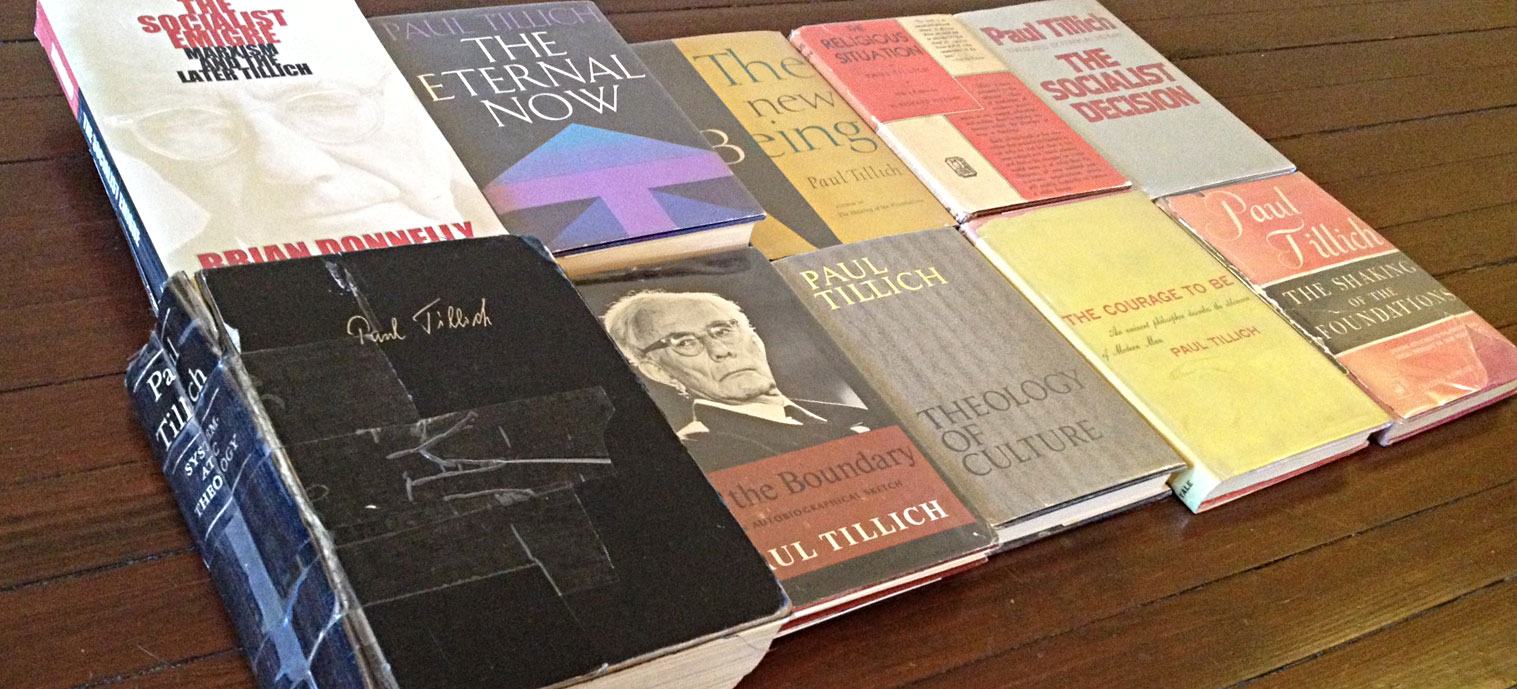Shortly before he died, and as the U.S. invasion and occupation of Iraq was imminent, Edward W. Said made reference to theologian of culture, Paul Tillich, whose life and writings are the subject of this course:
“Years of sacrifice and struggle, of bones broken in hundreds of prisons and torture chambers from the Atlantic to the Gulf, families destroyed, endless poverty and suffering. Huge, expensive armies. For what?
This is not a matter of party or ideology or faction: it’s a matter of what the great theologian Paul Tillich used to call ultimate seriousness. Technology, modernisation and certainly globalisation are not the answer for what threatens us as a people now. We have in our tradition an entire body of secular and religious discourse that treats of beginnings and endings, of life and death, of love and anger, of society and history. This is there, but no voice, no individual with great vision and moral authority seems able now to tap into that and bring it to attention.” (The Guardian)
Tillich sought to be such a voice in his time. This course explores his work as it was forged in the ashes of World War I and Weimar Germany, and then from 1933 onward in the United States, to which he had fled at the time of the Nazi takeover. In the United States he continued his career of re-interpreting key symbols of Christian faith, so as to address questions about being and alienation, existential estrangement and spiritual community.
He supported war against the Nazis in his native land, but in the U.S. he did not cease asking hard questions of American audiences there – these, for example, in 1942 at the Congress of the Protestant Episcopal Church, Indianapolis, during the height of U.S. war mobilization in Asia and Europe.
“When we fight against Japan, do we fight a racial war, a war for the maintenance of European imperialism in Asia, or do we fight for the freedom of Asia also from ourselves.”
We we fight on the side of Russia, do we fight on her side because it is useful for us to do so for the time being, but with the intention of excluding her once more from European affairs, or do we acknowledge seriously her right to determine, on an equal basis with the Western nations, the destiny of Europe and Asia?
When we fight in Europe, do we go as punishers, educators, cultural and economic conquerors in order to actualize the “American century,” or do we go in order to help Europe to survive and to be re-established in new forms and for a new future?”
This course traces the play of hard questions and Tillich’s responses to them throughout a life-time of writing as professional theologian of culture at Union Theological Seminary/Columbia University, Harvard University and the University of Chicago, where he died in 1965.
Syllabus
